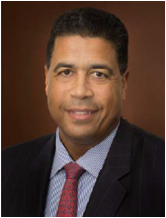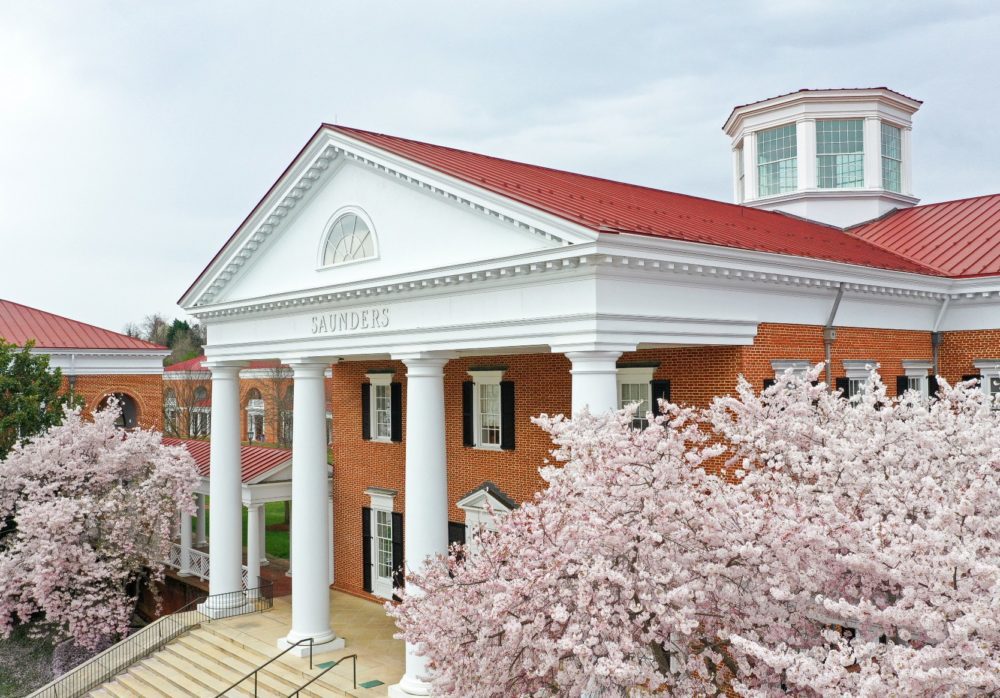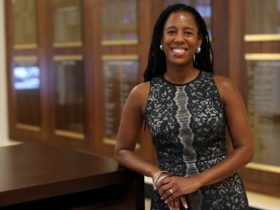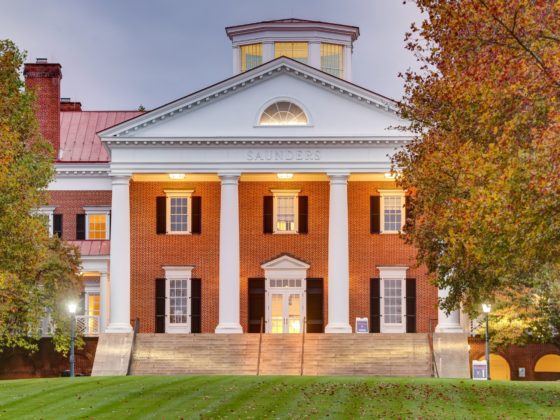Senior Assistant Dean of Admissions Dawna Clarke spoke with Alex Picou (MBA ‘89) during a recent Q&A webinar. Clarke highlighted Picou’s journey from first-generation college student, to lawyer, to MBA student. Now a client advisor and managing director of private banking at JPMorgan, Picou is an active part of the Darden alumni network, making contributions to Darden through his work as a trustee and as chair of the Dean’s Diversity Advisory Council. Throughout the Q&A session, Picou shared lessons learned throughout his career, including the importance of having honest conversations about diversity, intentionally seeking out authentic relationships with people at all levels of an organization, and what he appreciates most about Charlottesville, Virginia.
Read on for a few highlights from the conversation:
Q: Alex, could you share a few highlights of your Darden experience?
A: In the case method, you learn together. You will have a learning team where Darden has intentionally sprinkled in a marketing person, a finance person, an engineer — people with all different disciplines. You can’t do it all by yourself, you can’t cram for exams because of the way you’re learning along the way, and this team of classmates is there to help. Coming from a legal and Socratic background, I also liked that class participation might be 50 percent of the grade in some classes.
I’ll also say the camaraderie was a big factor. I played basketball with some of the professors after class every day, which I thought was pretty unique! We didn’t talk about class while on the court. That camaraderie among students and faculty was just as much part of the experience as living in walking distance to Darden with a view of the Blue Ridge Mountains and having a quality of life that I really enjoyed while I was a student.
Q: What is your advice for making the most of classroom contributions?
A: The best defense is a good offense, so if 50 percent of your grade is class participation, talk early and participate before all the good topics get taken.
Everyone truly brings a significant contribution from their previous work and experience. Be open to learning from your classmates who have different backgrounds and points of view.
The first year was extremely challenging, but when I went to New York to work during the summer and then came back in the fall, everything was suddenly crystal clear. It’s as though being able to put into practice what we had been learning added a lot of clarity to my understanding, especially with finance concepts.
Q: Do you have insights for future MBA students on preparing for for a career in investment banking?
A: There are plenty of finance concepts to understand, but I would recommend reading some books about the history of the industry. Recommendations include Last Man Standing about Jamie Dimon, the financial crisis, and how in 2008 JPMorgan bought Bear Stearns with two days due diligence, and with four days due diligence bought Washington Mutual to help save the banking system. Another recommendation is The House of Morgan, which is the history of the Morgan banks and J.P. Morgan. It’s important to have a sense of the history of the finance industry and investment banking — it helps with understanding what’s going on at present and putting it all in context. A 40, 50, or 60-year chart tells you much more than a 1-year view.
Q: How do you use your Darden education today?
A: The way that Darden teaches is how you will work in the real world. It’s a collaborative process — and it may be matrix organizations or groups that you create for different projects. You will learn in the same way you’ll work every day, and that’s a pragmatic skill I still use each day. This process creates a value which in turn creates a closeness and develops a network that you really don’t see at other schools.
Q: What do you notice about candidates during interview that makes them stand out?
- Be prepared — do your research. Read the annual report, read the CEO’s annual letter. If possible, research the person you will be speaking with and figure out what commonalities you might have.
- Interview the interviewer. Try and learn something about the interviewer and find out why they are at the company. You can only be successful in this if you do your homework.
- Be focused and passionate. It’s evident when you are not being sincere.
Q: You’ve mentioned how much you appreciate Charlottesville and the quality of life you were able to have as a student — could you share a bit more about that?
A: When considering going to business school, you need to make a quality of life decision. If I’m going to be a student, I’d rather be in Charlottesville than anywhere else. When I was thinking about an MBA, the quality of life I looked for was not being in an urban setting and having an efficiency apartment. There is also a high level of safety around all of Charlottesville and the University of Virginia. I didn’t come from a school where sports were a big deal, but UVA has had a number of NCAA National Championships including Men’s Basketball, Women’s Swimming and Diving, Men’s Lacrosse, Men’s Tennis, Baseball and others — I had never been to a school that had Division I sports, and I really enjoyed that aspect of UVA and Charlottesville.

“Because of the case method, you become so close with your classmates – consequently the enthusiasm of the Darden alumni network is incredibly unique and phenomenal.”




